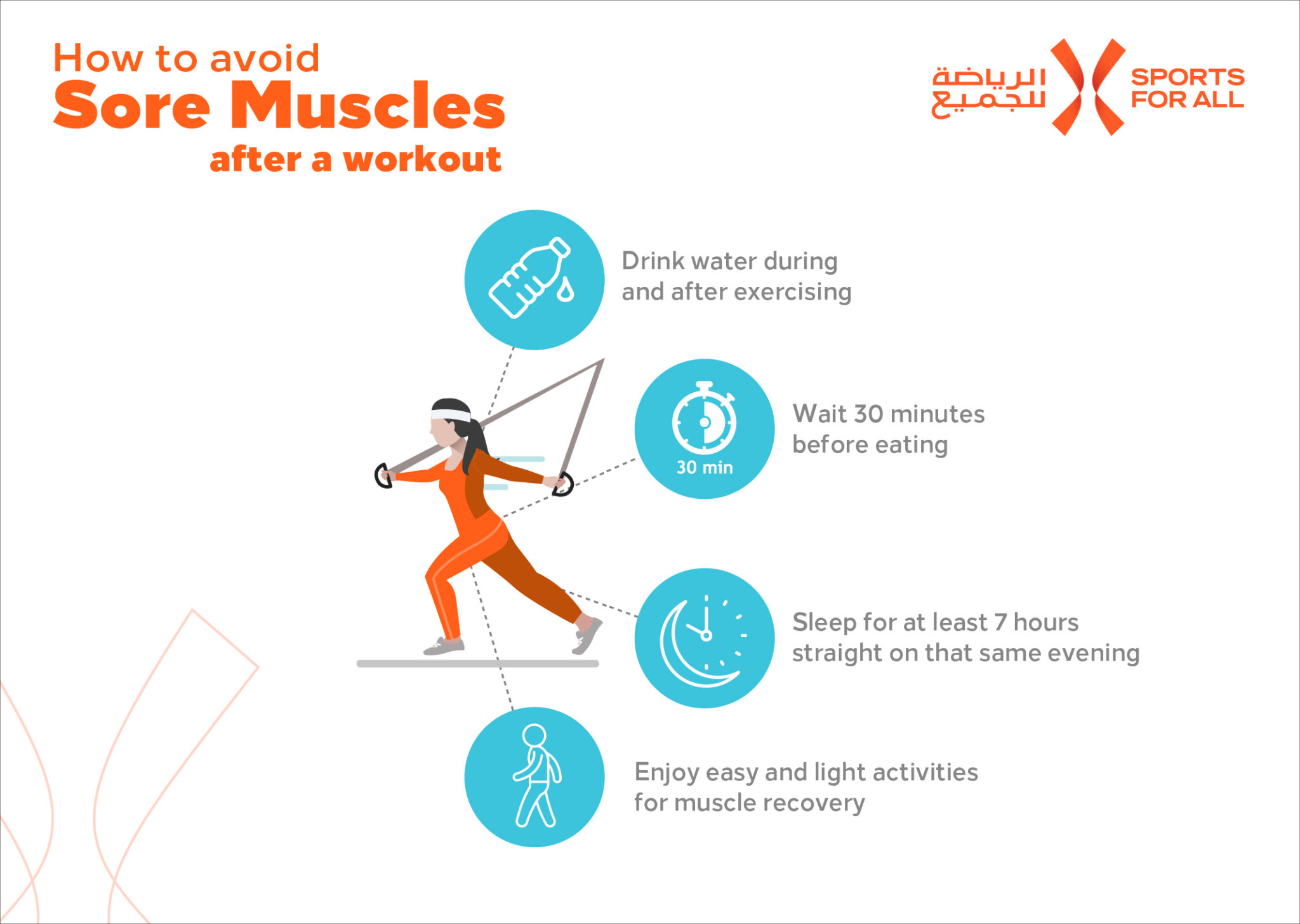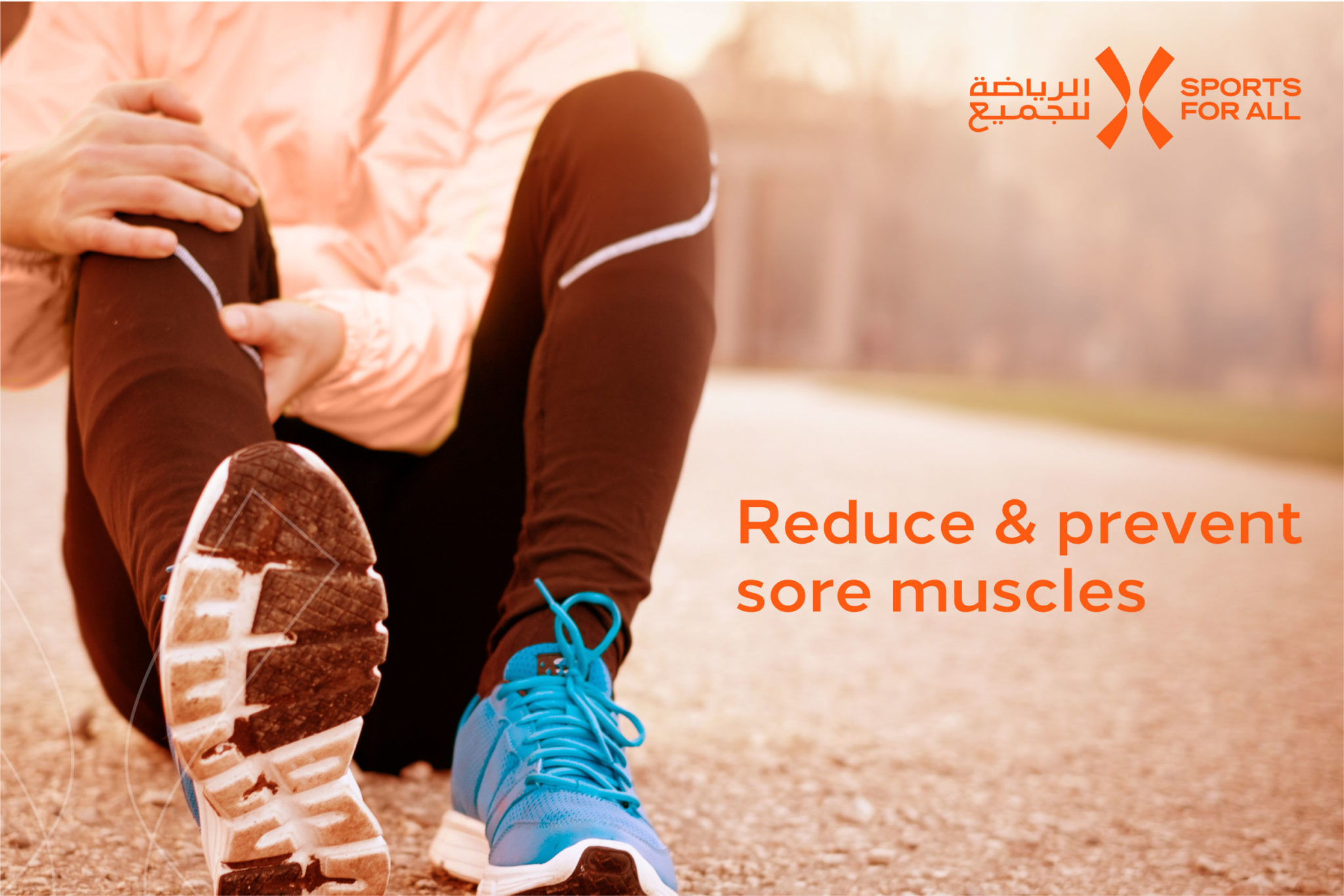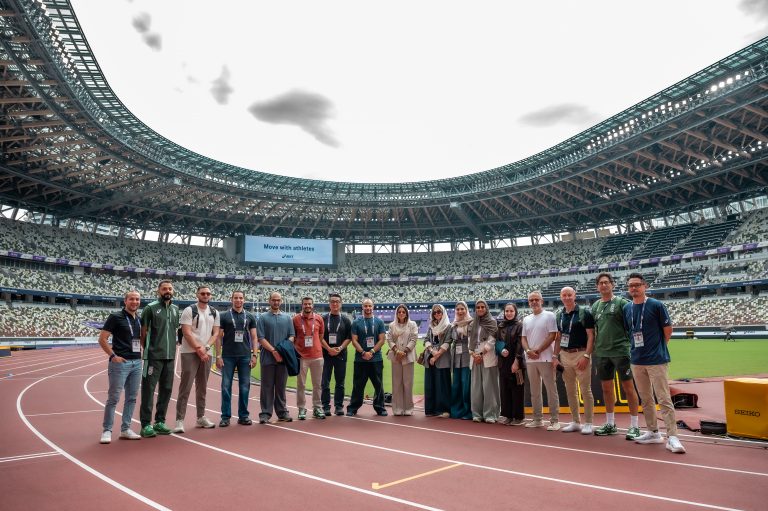Four easy steps you can take to reduce and prevent post-workout aches
You have just finished a killer workout. You are sure that you are going to wake up sore tomorrow. While it is satisfying to feel some soreness, it is inconvenient to be waddling around the office or school the next day because your hamstrings are sore. Here are four tips to help keep muscle soreness to a minimum:
- Stay hydrated
More than 50% of your body is made up of water. It is a straightforward relationship: the more hydrated you are, the better your body functions. Drinking a good amount of water before physical activity will help energize and protect your muscles going into your workout.
You should also continue to hydrate post-workout. Scientists have not conclusively determined the cause of delayed-onset muscle soreness (DOMS). However, many researchers accredit muscle soreness to cell damage and elevated release of various metabolites into the tissue surrounding muscle cells. Drinking water post workout can help flush out the toxins and metabolites to reduce muscle soreness in the following days. Drink up!

- Time your meals and snacks
The decision to eat before a workout is a preference that varies from person to person and depends on the type of workout. Some people prefer to work out on an empty stomach, while others have a light meal or snack.
Personal preferences aside, you should keep in mind that the closer to your workout, the simpler and lighter your meal should be. Experts advise to avoid eating at least 30 minutes before your workout to avoid gastrointestinal issues and muscle cramps. Eat smart, and time your meals accordingly, helping to prevent muscle discomfort.
- Get some rest (really)
It is an established fact that sleep is a time for our body to rest and recover. Nonetheless, life sometimes gets in the way and we do not get as much sleep as we’d all like. After a strenuous workout, however, you should prioritize getting at least seven hours of sleep so that your muscles are able to effectively undertake repairs.
The majority of muscle repair and growth happens when we are asleep and our hormones are released. Our brain sends anti-inflammatory agents to our muscles to help remove damaged cells and begin the repair process. Studies published in the US National Library of Medicine and National Institutes of Health have shown that sleep debt decreases the activity of protein synthesis, which hinders muscle recovery after damage caused by exercise. Think twice before binge watching a new series before bed, especially after a grueling workout!
- Take it easy
If you wake up extremely sore after a day of heavy lifting or a new Pilates class, you should try to take it easy. It is essential to allow your muscles the time to properly recover. Doing so will by no means slow down your progress in achieving your fitness goals.
Lighter workouts will still enable you to stay on track while protecting from overuse injuries; it is also a great opportunity to switch things up so that you do not get bored with your current routine. Take a walk, do some stretches, or turn on a YouTube yoga video!
Exercise is great for our minds and bodies, so keep up your workouts! Don’t forget to try applying some of these recommendations to help your muscles recover while keeping soreness at bay.
Healthy Living is a frequently updated content section brought to you by the Saudi Sports for All Federation. In the spirit of supporting our #HealthyActiveCommunity, we’re sharing tips around wellness, physical activity and more!






